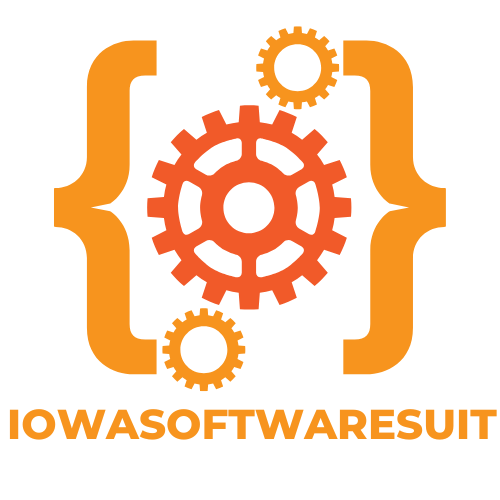Table of Contents
ToggleIn a world where technology reigns supreme, the ability to hack and code isn’t just a skill—it’s a superpower. Imagine being the person who can crack the code, solve complex problems, and maybe even save the day like a digital superhero. Whether you’re looking to build the next big app or just want to impress your friends with your newfound skills, diving into hacking and coding tutorials is the perfect way to start your journey.
Overview of Hacking and Coding Tutorials
Hacking and coding tutorials serve as vital resources for individuals eager to enhance their technical skills. These tutorials provide structured learning pathways, covering topics from basic programming languages to advanced cybersecurity techniques. Learners engage with interactive content, gaining hands-on experience through practical exercises.
Online platforms host a wide range of tutorials. Websites like Codecademy and freeCodeCamp offer beginner-friendly courses, while sites like Udemy and Coursera feature specialized classes. This variety caters to different learning styles and paces, making it easier for anyone to start.
Many tutorials focus on specific programming languages, including Python, JavaScript, and C++. These languages have diverse applications, ranging from web development to data analysis. Individuals may choose a tutorial that aligns with their interests or career goals.
Cybersecurity tutorials emphasize protecting systems and networks from threats. They often cover essential topics such as penetration testing, ethical hacking, and network security. Each tutorial aims to equip learners with the necessary skills to defend against cyber attacks.
Additionally, project-based tutorials encourage practical application of knowledge. By completing projects, learners solidify their understanding and build portfolios. Showcasing these projects can impress potential employers or collaborators.
Community support enhances the tutorial experience. Forum discussions, Q&A sections, and peer reviews provide opportunities for feedback and collaboration. Engaging with others fosters a sense of belonging within the tech community.
Hacking and coding tutorials ultimately bridge the gap between theory and practice, empowering individuals to leverage technology effectively. They present a pathway toward mastering valuable skills in this rapidly evolving digital landscape.
Types of Hacking and Coding Tutorials
Hacking and coding tutorials encompass a variety of fields, each catering to specific interests and skill sets. These resources empower learners, enhancing their understanding of complex concepts in technology.
Ethical Hacking Tutorials
Ethical hacking tutorials focus on teaching individuals how to identify vulnerabilities in systems and networks. These courses often cover tools and methodologies used in penetration testing. Through these tutorials, learners gain insights into security measures and how to implement them effectively. Actual case studies exemplify real-world applications, enhancing the learning experience. Platforms like Udemy and Cybrary offer comprehensive courses that cater to beginners and advanced learners alike. Practical exercises allow users to apply their knowledge and refine their skills in ethical hacking.
Programming Language Tutorials
Programming language tutorials expand knowledge of various coding languages essential for modern development. Python, JavaScript, and C++ are among the most popular languages taught today. Structured courses detail syntax, functions, and best practices for coding. Interactive platforms like Codecademy and freeCodeCamp provide hands-on coding challenges that reinforce learning through practice. Beginners find step-by-step instructions that simplify complex topics, while advanced learners explore frameworks and libraries. These tutorials prepare individuals for in-demand roles in software development and web design.
Popular Platforms for Tutorials
Numerous platforms offer a wealth of hacking and coding tutorials, catering to different learning preferences and skill levels.
Online Course Platforms
Online course platforms like Codecademy and Udemy provide structured tutorials covering various programming languages and hacking techniques. Students can find interactive lessons and projects that enhance their understanding. FreeCodeCamp focuses on coding and web development with hands-on projects that require practical application of skills. Coursera partners with universities to offer courses in cybersecurity and programming, ensuring high-quality content. Each platform allows users to learn at their own pace, accommodating diverse learning styles.
YouTube Channels
YouTube channels dedicated to coding and hacking feature a vast array of tutorials for visual learners. Channels like Traversy Media and The Net Ninja present engaging videos that simplify complex topics. Many channels focus on specific programming languages, offering playlists that guide users through step-by-step processes. Security-related channels emphasize ethical hacking practices, providing insights into real-world applications. These channels create an accessible way for individuals to supplement their learning with visual demonstrations and examples.
Key Benefits of Learning Hacking and Coding
Learning hacking and coding offers numerous advantages that benefit both personal growth and career opportunities. Enhanced problem-solving skills lead to improved critical thinking abilities. Additionally, understanding coding languages like Python and JavaScript opens doors to diverse job prospects in web development and software engineering.
Increased job market demand for tech talent signifies the importance of these skills. Industries prioritize individuals with coding expertise and cybersecurity knowledge. Acquiring skills in ethical hacking makes candidates more appealing to employers seeking to protect sensitive data from cyber threats.
Moreover, practical hands-on experience gained through tutorials strengthens both confidence and competency. Engaging in project-based learning allows individuals to build portfolios that showcase their abilities. On platforms like freeCodeCamp, learners can directly apply their knowledge to real-world projects.
Community support further enriches the learning journey. Forums and peer reviews foster collaboration among learners, helping them navigate challenges together. This sense of belonging within tech communities enhances motivation and commitment to learning.
Flexibility offered by online tutorials accommodates various learning styles. Video content on YouTube channels such as Traversy Media offers visual learners an engaging way to grasp complex topics. Structured courses on sites like Codecademy provide step-by-step guidance for those who prefer organized learning.
In light of cybersecurity threats, gaining knowledge from specialized tutorials is vital. Understanding vulnerabilities and methodologies used in penetration testing equips individuals with essential skills to protect systems effectively. Through ethical hacking training, learners develop a foundation in cybersecurity that enhances their career prospects.
Overall, learning hacking and coding not only equips individuals with technical skills but also empowers them to navigate a rapidly evolving digital landscape with confidence.
Best Practices for Effective Learning
Establish clear goals. Setting achievable objectives helps learners stay focused and measure progress effectively.
Utilize structured resources. Online platforms like Codecademy, freeCodeCamp, and Udemy offer tailored tutorials that cater to different skill levels and learning styles.
Engage in project-based learning. Completing real-world projects reinforces concepts and demonstrates skills, making it easier to create impactful portfolios.
Join coding communities. Participation in forums allows for networking, collaboration, and feedback, enhancing the overall learning experience.
Experiment with various programming languages. Learning languages such as Python, JavaScript, and C++ provides exposure to different applications and broadens skill sets.
Apply knowledge in practical scenarios. Hands-on exercises in ethical hacking and other domains deepen understanding and improve retention of information.
Seek feedback and reviews. Constructive criticism from peers can guide improvements and highlight areas needing attention.
Balance theory and practice. Emphasizing both aspects ensures a well-rounded understanding of coding and hacking principles.
Embrace continuous learning. Staying updated with new technologies and trends keeps skills relevant and enhances career opportunities.
Explore visual and interactive tutorials. Resources like YouTube channels such as Traversy Media simplify complex topics and cater to visual learners.
Focus on cybersecurity training. Specialized tutorials in this area prepare learners to tackle real-life challenges in protecting data and systems.
Adapt learning strategies to fit individual preferences. Different people thrive under varying conditions, identifying the right approach leads to more effective learning outcomes.
Hacking and coding tutorials open doors to a world of opportunities. They equip individuals with the skills needed to navigate and excel in today’s tech landscape. By engaging with these resources, learners can build a solid foundation in programming and cybersecurity, enhancing their employability and problem-solving abilities.
The journey doesn’t end with completing a few tutorials. Continuous learning and community involvement are essential for staying relevant in this fast-paced environment. Embracing new challenges and collaborating with peers fosters growth and innovation.
Ultimately, mastering hacking and coding isn’t just about acquiring technical skills; it’s about empowering oneself to shape the future of technology confidently.





